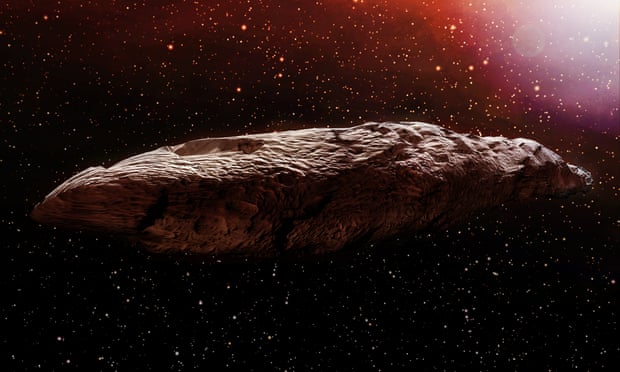Team will search for evidence of extraterrestrial life by looking for advanced technology it may leave behind
Source: The Guardian
A team of scientists will embark on a new international research project led by Harvard University to search for evidence of extraterrestrial life by looking for advanced technology it may leave behind.
The Galileo Project is led by the Harvard astronomy professor Avi Loeb. Loeb co-founded the project with Frank Laukien, CEO of Bruker Corporation, a Massachusetts-based manufacturer of scientific equipment.
“Given the recently discovered abundance of Earth-Sun systems, the Galileo Project is dedicated to the proposition that humans can no longer ignore the possible existence of Extraterrestrial Technological Civilizations (ETCs),” the team announced in a statement on Monday.
The project follows the US government’s report from last month on a number of Unidentified Aerial Phenomena that were reported by navy personnel and Oumuamua, an interstellar pancake-shaped object that entered the solar system in 2017. Oumuamua did not resemble any previously observed comet or asteroids and in turn sparked a debate among astronomers regarding its true origin.
According to the Galileo Project team, “Oumuamua turned out to have highly anomalous properties that defy well-understood natural explanations.” “We can only speculate … by stretching our imagination to ‘Oumuamua’ perhaps being an extraterrestrial technological object, similar to a very thin light-sail or communication dish,” it added.
Rather than searching for electromagnetic signals, the Galileo Project will search for physical objects associated with extraterrestrial technological equipment, also known as technosignatures.
The project will follow three major avenues of research: obtain high-resolution images of UAP through multi-detector sensors to discover their nature, search and conduct in-depth research on “Oumuamua-like” interstellar objects, and search for potential ETC satellites.
“It is very important that we keep in mind that the Galileo Project is not for everything, and it is not for everyone,” said Laukien. “It has a defined scope, and it has limitations,” he added, referring to the project’s aim of only exploring known physics explanations rather than speculating on prior UAPs, alleged observations and informal reports.
“We want to clear the fog through a transparent and scientific analysis by assembling our own data, not data based on government-owned sensors, because most of that data is classified,” Laukien said.
Currently, the team is selecting instruments it plans to purchase and is planning to set up tens of telescope systems globally. Each system will consist of approximately two 25-centimeter (10in) telescopes with a camera suitable to detect objects of interest, connected to a computer system that will filter out data.
“We are planning to get some interesting results in the coming year, hopefully,” Loeb said in a recent press conference.
The project, named after the Italian astronomer Galileo Galilei who is known for his pioneering use of telescopes, pledges to “dare to look through new telescopes, both literally and figuratively”.
Source: The Guardian

































Leave a Comment
You must be logged in to post a comment.